Tourism is pretty big in Asheville, but City Council member Gordon Smith was feeling increasingly troubled by some of the industry’s negative impacts, like low wages and added infrastructure costs. He was casting about for ideas when he stumbled on a United Nations resolution titled “Transforming Our World: The 2030 Agenda for Sustainable Development,” which addresses tourism as an economic strategy for developing countries.
“I was looking around the internet for places that had had this conversation and had a healthier collaboration,” says Smith. “I saw that people in other places are looking at these issues. The U.N. guidelines really get at the things I’ve been looking for.”
Stressing the need for collaboration among residents, businesses and government officials, the resolution calls for formulating “sound and culturally sensitive tourism programs … as a strategy for sustainable development of urban and rural settlements and reducing discrepancies among regions.” This approach, it maintains, could “conserve and protect the environment [while improving] the welfare and livelihoods of local communities.”
Inspired, Smith decided to raise these ideas with city officials and the community at large (see accompanying article, “Tourism and Its Discontents”).
Asheville, however, is not a developing country. So what does a catchphrase like “sustainable tourism” mean here in Western North Carolina? How do you make it work at the ground level?
Sustainable luxury
Seeking some answers, Xpress picked the brains of assorted local folks who are already grappling with these issues as Asheville and WNC strive to manage a burgeoning tourist influx.
To Asheville-based business consultant Marilyn Ball, sustainable tourism means “making a low impact on the environment and the local culture while generating future employment for local people and ensuring a positive experience for locals and tourists alike.”
Gary Froeba, managing director of The Omni Grove Park Inn, says, “Sustainable tourism can be defined in different ways.” The hotel, he explains, has implemented various programs and management tactics designed to minimize its environmental impact and support the community. They include paying over 78 percent of the hostelry’s roughly 1,000 employees a living wage and providing free employee bus passes, as well as substantial investments in recycling programs and solar panels. There’s even a Tesla recharging station for guests’ vehicles.
In the guest rooms, notes Froeba, “We utilize low-flow showers and toilets. We’ve converted all lamps from incandescent light bulbs to compact fluorescent bulbs that consume only one-quarter of the energy and last 10 times longer.” In addition, the hotel has “placed a placard in each room which gives guests a choice to not have their sheets and/or towels changed daily.” About 80 percent of guests choose that option, says Froeba.
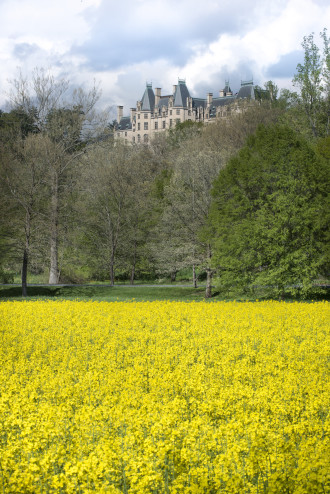
Similarly, Biltmore Estate, which draws roughly 1 million visitors a year, tries to honor founder George Vanderbilt’s legacy. That means working to “preserve the surrounding beauty and steward the land and its resources for years to come,” says LeeAnn Donnelly, public relations manager for The Biltmore Co. “Our sustainable agriculture program supplies fresh produce, hormone-and antibiotic-free meats, eggs from free-range hens and fine wines to our culinary teams to incorporate into meals served to our guests.”
By producing some of the food on-site and locally sourcing other items, Biltmore reduces tailpipe emissions while supporting local farms. In addition, the estate devotes 50 acres to growing canola, which is converted into biofuel to run vehicles and maintenance equipment. “Our 9-acre solar field generates 1.7 megawatts of renewable energy, and 13 of our estate shuttles run on propane, a clean-burning fuel,” notes Donnelly. “We are happy to be part of a community that shares the same commitments to sustainability as we do.”
Teach a man to fish
But sustainability also has a cultural dimension, says Charlie Jackson, executive director of the Appalachian Sustainable Agriculture Project. “Asheville is connected to a scenic and culturally rich landscape. That needs to be supported in all aspects of tourism development.”
To that end, ASAP has created farm tours, a Local Food Guide and hands-on workshops teaching farmers how to give visitors a positive experience while generating profits. “Farm tours, eating local at restaurants and shopping at markets has the ripple effect of preserving our landscape and rural communities,” notes Jackson.
Ariel Dixon agrees. “Sustainable tourism for Buncombe County … means supporting our local farms and agribusiness,” says Dixon, the county’s farmland preservation coordinator. “If all of our farmland, ridge tops and mountainsides are developed, we’ll no longer have that scenic beauty that’s imperative to local tourism.”
Last fall, her program was awarded a roughly $6,000 grant from the county’s Recreation Services Department to develop a self-guided Farm Heritage Trail for tourists, with signage and periodic special events. The grand opening is slated for Saturday, May 7.
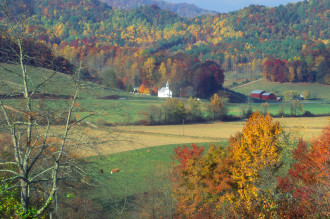
“The trail passes by almost all of the farms protected by conservation easements in the northwestern part of the county, along with opportunities for farm stops and seasonal events,” she explains. “Sharing these beautiful, rural places with our community and with tourists,” notes Dixon, “helps make the connection that these places are beautiful, unique and imperative to protect.”
Tourism for the rest of us
Karen Cragnolin, executive director of RiverLink, says protecting the natural resources that draw tourists to the region must be at the core of any model the city considers. “We have a rich history that is an education in itself. Learning about our history, biological diversity and beautiful, pristine environment,” she points out, can benefit students as well as tourists.
The Southern Appalachian Highlands Conservancy, which has helped preserve thousands of acres of agricultural and environmentallyexceptional local land, shares that philosophy.
“Striking a balance between visitation to the region and protection of our unique natural resources, as well as nurturing a healthy sense of community, is what sustainable tourism means to us,” says Angela Shepherd, the land trust’s communications director. “Unfortunately, the popularity of a place can become its undoing. It’s incredibly important that as Asheville and WNC grow in popularity, the places we love aren’t ‘loved to death.’”
Accordingly, the conservancy “leads guided group hikes to protected areas,” she notes. “We partner with the Appalachian Trail Conservancy to host a seasonal Roan naturalist position throughout the popular summer months, to promote leave-no-trace principles and educate visitors about rare and fragile ecosystems.”
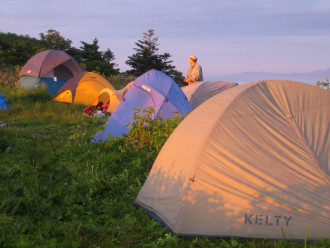
Community outreach is another key aspect of this strategy. The nonprofit’s For Love of Beer and Mountains program, a partnership with Highland Brewing Co., also helps “raise awareness about the unique natural resources in our region,” she adds.
Keeping locals’ interests and needs at the forefront of the discussion is essential, Cragnolin maintains. “We at RiverLink won’t fund anything that residents can’t use and love. If tourists happen to love and use it too, great, but we won’t recommend or support anything that only tourists would use.”
This principle can also be applied to local businesses, says Franzi Charen, director of the Asheville Grown Business Alliance. “Sustainable tourism is about balance. Just as the exploitation of nature carries an ecological cost, the same goes for the exploitation of culture and its cost to communities.”
And while tourism is unquestionably a potent economic engine, she continues, “We risk becoming dependent on a very fickle industry. At the very least, marketing dollars should stay in our community and be used to strengthen our local economy and increase the capacity of our own marketing businesses.”
Like attracts like
Asheville’s potential as a model of sustainable tourism has already helped attract like-minded companies such as New Belgium Brewing. “We’ve always had a strong commitment to community, co-workers and the environment,” notes spokesperson Suzanne Hackett.
That commitment is reflected in the brewery’s physical location, she says. “It’s located on an urban brownfield to align with a sustainable infill-and-redevelopment strategy, instead of clearing virgin land.” This has the dual effect of “restoring important ecosystem functions as well as offering a beautiful and uplifting community space. Being located in a walkable and bikeable urban setting also provides quality-of-life benefits to co-workers and visitors.”
The new facility, which is now nearing completion, incorporates 97 percent of the materials salvaged from previous structures on the site. “Reclaiming this site for use along the French Broad River was as important to us as incorporating green building practices,” Hackett reports. “All of the parking areas and roads drain rainwater runoff into a range of stormwater treatment areas, and the campus is a model for low-impact development in the city.”
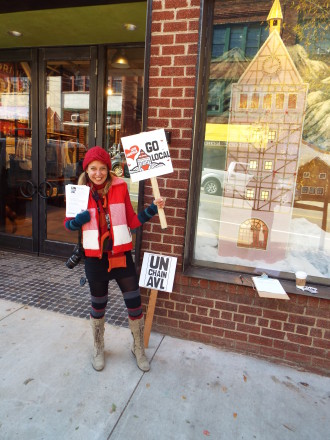
All together now
But while such efforts can help nurture sustainable tourism, broad involvement is the true measure of success, stresses Shepherd of the Southern Appalachian Highlands Conservancy. “We’d like to see continued financial support for conservation initiatives,” she says, adding that individual “residents and visitors to the area can become SAHC members, volunteer, or join us for a hike or special event.”
Jackson, meanwhile, believes more can be done to ensure that tourist dollars find their way to farmers. Local government, he says, should “allow more prepared foods at markets and waive market fees on farmers, as well as support the present-use tax, allow EBT at farmers markets and include farmers in promotional efforts aimed at tourists.” North Carolina’s present-use tax allows certain property to be valued at below-market rates for tax purposes.
For her part, Charen sees Asheville “as a learning lab for the new economy.” Instead of viewing this area solely as a playground, she argues, “Tourists will come to learn from our example of an economically successful community that offers access to prosperity for all.”
For the same reason, New Belgium plans to continue supporting greenway efforts in Buncombe County through property easements, fundraising and helping spread awareness of the benefits, says Hackett. “The opportunity to ride a bicycle, run or walk in a city allows people to make deep connections and develop adoration for a place,” she maintains. “It’s going to take both public and private support to make that happen, and we plan to continue to be part of the village.”



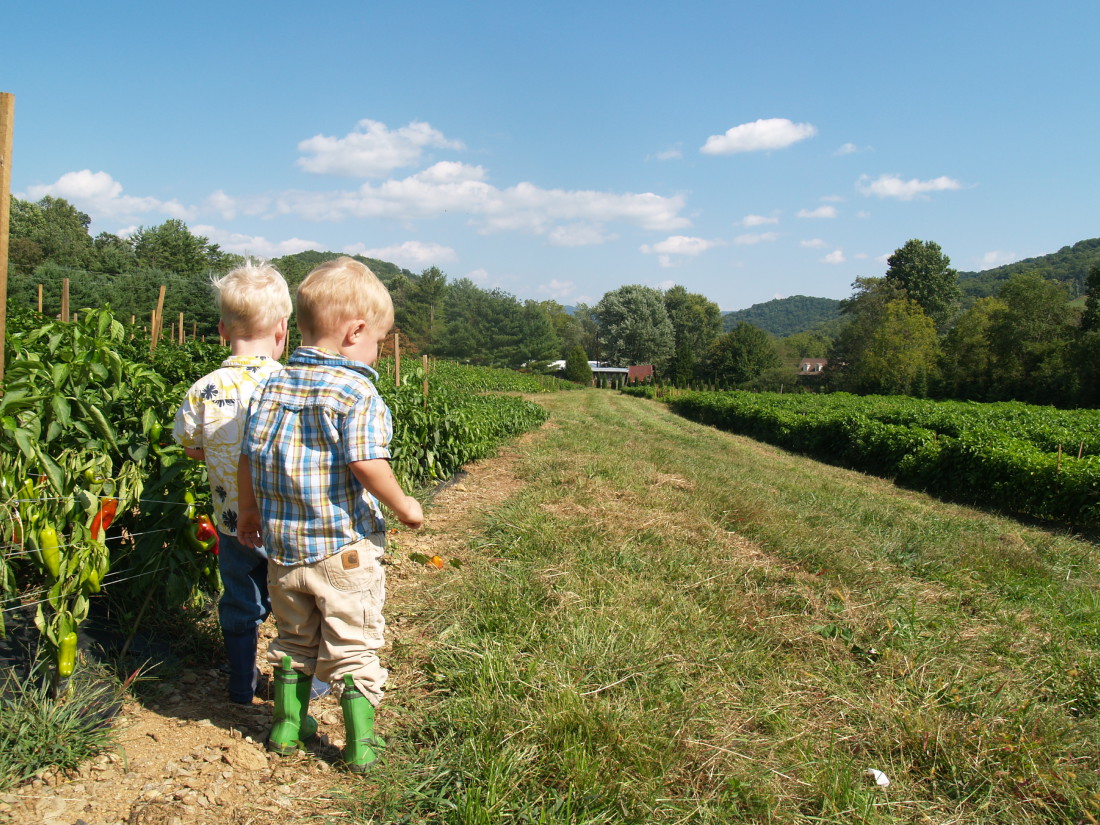
I was quite possibly the first person in Asheville seeking political office to use the term “sustainable tourism”. That practice, of which there was preexisting examples around the world as of last fall, was part of my council campaign.
https://mountainx.com/news/grant-millin/
Yes, you posted the same thing for the other article about sustainable tourism (2 in 1 week) we get it.
Too bad sustainable tourism is an oxymoron, much like I posted in the other article about sustainable tourism (2 in 1 week).
Thomas Malthus. Carrying capacity. Heaven forbid anyone look it up.
I think I see a pattern in Mtn X for kneeling to the altar of tourism and out of control development.
Advertising $- ka ching.
I stopped using the term kow tow as too many people had to look it up. I’m so sorry for not using more local vocabulary like synergy or channeling energy flow.
http://sustainnc.com
Naaaaaaaaaamaste.
Thanks for sharing Grant!
really? all this hullaballoo ? with ALL the OTHER problems Asheville has? can Gordon Smith not attack other pending needs for the city NOW instead of this BS ? ? ? OMG, just SUCH incompetence our City Council!
OH, and NOW the Housing Authority is BEGGING for $4 MILLION of taxpayer money for the Lee Walker rebuild adding even MORE blight to Asheville ! YET, City COUNCIL REFUSES to oversee the Housing Authority of ASHEVILLE in any way otherwise.
It’s an OUTRAGE.